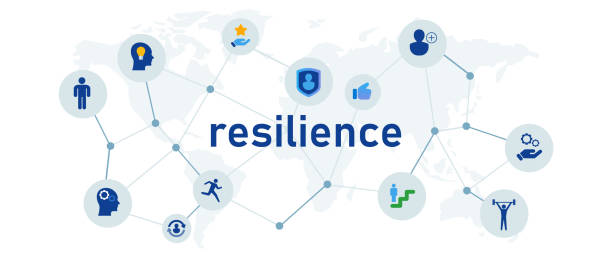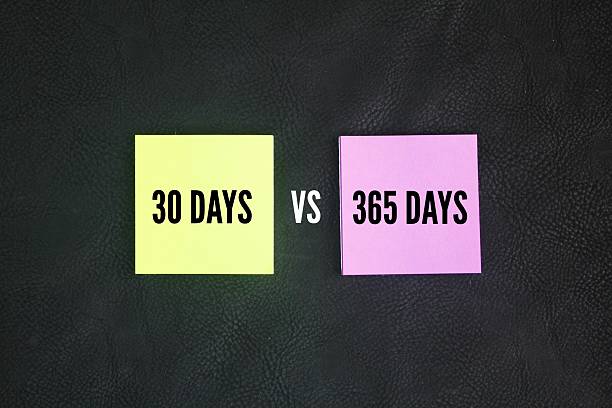In the demanding world of Chartered Accountancy (CA) studies, developing resilience stands out as a crucial skill for navigating challenges and achieving success. This article dives into practical ways to build that inner strength, helping you bounce back from setbacks and thrive over time. For a broader perspective, check out our related guide on Stress Management and Mental Health for CA Students, which explores techniques to handle pressure, maintain emotional balance, and foster well-being during your exam preparations at Knowsia Study Hub.
Understanding Resilience: The Foundation of Long-Term Success
Resilience isn’t just about toughing it out; it’s that quiet ability to adapt when life throws curveballs your way. Think of it as a muscle you train over time—stronger with every workout. For CA students, who often face grueling exam schedules and high-stakes audits, developing resilience means turning stress into fuel rather than letting it derail your progress.
Psychologists define resilience as the process of adapting well in the face of adversity, trauma, or significant sources of stress. It’s not innate; anyone can cultivate it through deliberate practices. And why bother? Because long-term success in any field, especially one as rigorous as accountancy, hinges on your capacity to recover from failures without losing momentum. Imagine failing a module—not uncommon in CA journeys—and instead of spiraling, you analyze what went wrong, adjust your study plan, and push forward. That’s resilience in action.
At Knowsia, we’ve seen countless students transform their approaches by focusing on this trait. It’s the difference between those who drop out midway and those who qualify as chartered accountants, building thriving careers.
Developing Resilience Through Mindset Shifts

Shifting your mindset is the first step in developing resilience for long-term success. Start by reframing challenges: instead of viewing a tough audit simulation as a threat, see it as a chance to sharpen your skills. This positive reappraisal, backed by cognitive behavioral techniques, reduces anxiety and builds confidence.
One idiom that fits here is “what doesn’t kill you makes you stronger.” Sure, it’s cliché, but it rings true for CA aspirants juggling coursework, internships, and personal life. Embrace a growth mindset, as coined by psychologist Carol Dweck—believe that abilities can be developed through dedication and hard work. When you hit a wall, like struggling with complex tax laws, remind yourself that effort leads to mastery.
Transitional phrases aside, let’s get practical. Journaling helps. Each evening, jot down three things that went wrong and how you’ll tackle them differently next time. Over weeks, this builds a habit of reflection, turning potential breakdowns into breakthroughs. And don’t forget gratitude—acknowledging small wins, like acing a practice test, reinforces your progress toward long-term goals.
Building Support Networks for Sustained Resilience

No one builds resilience in isolation; it’s often a team effort. Surrounding yourself with supportive people—mentors, peers, family—provides a safety net during tough times. For CA students, joining study groups at platforms like knowsia.com can make all the difference. Share experiences, vent frustrations, and celebrate milestones together.
Consider this: when exam results disappoint, a quick chat with a fellow student who’s been there can reignite your motivation. Networks also offer diverse perspectives; maybe a senior CA shares how they overcame a similar hurdle, inspiring you to persist.
But building these connections requires effort. Attend webinars, participate in forums, or even reach out via LinkedIn. Actively seek feedback—it’s not always comfortable, but it fosters growth. Remember, resilience thrives on vulnerability; admitting you need help isn’t weakness; it’s smart strategy for long-term success.
Practical Strategies for Developing Resilience in Daily Life
Let’s dive into actionable steps for developing resilience. First, prioritize self-care—it’s not optional. Sleep well, eat balanced meals, and exercise regularly. A tired mind crumbles under pressure, but a nourished one rebounds faster. For instance, incorporate short walks between study sessions to clear your head.
Next, set realistic goals. Break your CA syllabus into manageable chunks. Instead of aiming to master everything in a week, target specific topics daily. This prevents overwhelm and builds a sense of accomplishment, fueling your drive for long-term achievements.
Mindfulness practices, like meditation apps tailored for students, help too. Spend 10 minutes a day focusing on your breath—it calms the nervous system and enhances emotional regulation. When stress peaks during revisions, these tools keep you grounded.
Finally, learn from setbacks systematically. After a mock exam flop, dissect it: What concepts tripped you up? Adjust your methods accordingly. This iterative approach turns failures into stepping stones, ensuring steady progress toward success.
Resilience in the Face of CA-Specific Challenges

CA studies present unique hurdles—intense competition, voluminous material, and the pressure of professional expectations. Developing resilience here means anticipating these and preparing accordingly. For example, the Intermediate exams test not just knowledge but endurance; students often burn out midway.
To counter this, time management is key. Use techniques like the Pomodoro method: study for 25 minutes, break for 5. It maintains focus without exhaustion. Also, stay updated with regulatory changes via resources at Knowsia Study Hub, reducing last-minute panic.
Emotional challenges, like imposter syndrome, are common. Combat it by tracking your achievements—maintain a “success journal” listing passed modules or positive feedback. Over time, this builds self-efficacy, essential for long-term career success in accountancy.
Overcoming Setbacks: Real-World Examples
Real stories illustrate resilience best. Take Priya, a CA student who failed her Foundation exam twice. Instead of quitting, she sought mentoring through knowsia forums, revamped her study routine, and passed on the third try. Today, she’s a practicing auditor, crediting her success to that persistence.
Or consider Raj, who balanced a full-time job with CA preparations. Setbacks like family emergencies tested him, but by leaning on his support network and practicing stress-relief techniques, he qualified. These examples show that developing resilience isn’t abstract; it’s about consistent, small actions leading to big wins.
Interjections like “hey, it happens” normalize failures. Everyone stumbles, but resilient individuals get up faster, learning along the way.
Maintaining Momentum for Long-Term Success
Sustaining resilience requires ongoing effort. Regularly assess your progress—monthly reviews help identify what’s working and what isn’t. Adjust as needed; flexibility is a hallmark of resilient people.
Incorporate hobbies outside studies. Reading fiction or playing sports recharges you, preventing burnout. And remember, success isn’t linear; plateaus are normal. During these, double down on basics—review fundamentals, seek inspiration from successful CAs.
At Knowsia, we emphasize holistic development. Our resources, from mock tests to mental health tips, support your journey toward resilient, long-term success.
Conclusion: Your Path to Resilient Success
Developing resilience for long-term success is about more than surviving—it’s thriving amid challenges. For CA students, it’s the secret ingredient turning ambitious dreams into reality. Start small, stay consistent, and watch how it transforms your path. With tools from Knowsia Study Hub and a commitment to growth, you’re set for a fulfilling career. Keep pushing; the rewards are worth it.

